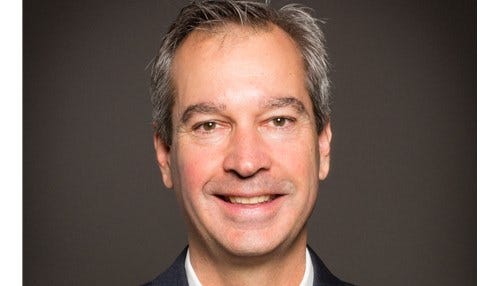Game-Changing Financial Resolutions For 2018

Subscriber Benefit
As a subscriber you can listen to articles at work, in the car, or while you work out. Subscribe NowForty-one percent of Americans will make New Year’s resolutions, according to the Statistic Brain Research Institute. And, if 2018 mirrors 2017, losing weight will top the list! But don’t neglect your finances. Here are three resolutions that will keep your finances healthy, too.
The good news: I’m not talking about making huge revamps. But, over time, implementing these three small changes will have a huge impact on your financial health.
Resolution #1 – Reduce/Eliminate Credit Card Debt
I’m sure you’re aware of the perils of credit card debt, but it merits repeating. Credit cards are relatively easy to obtain and super easy to use. But relying on credit cards can quickly place you on a very slippery downhill slope. Why? Credit card debt is usually very expensive. It should be avoided whenever possible. Unfortunately, 38.1 percent of U.S. households carry some credit card debt. The average balance for those households is roughly $16,000 and they pay around $900 per year in interest (NerdWallet Inc.). That $900 could be better spent. Right?
If you have credit card debt, paying it off should be your first financial resolution. You’ll need to both reduce your spending and accelerate paying down the balance. Reducing spending is self-explanatory (though like dieting, it’s easier said than done!). Accelerating the paydown is tough, but not impossible. For example, if you are fortunate enough to get a raise or a bonus, earmark some of it for reducing your credit card debt.
Resolution #2 – Build Up Your Emergency Fund
You’ve all seen the statistics. Americans are woefully unprepared for unexpected expenses. According to a survey by Bankrate, 57 percent of Americans can’t handle a surprise $500 expense. Speaking as someone who had to replace a furnace several months ago, a surprise expense can be a lot worse than $500!
Ideally, your emergency fund should contain three to six months of living expenses. That should be sufficient to get you through most emergencies. If you’re starting from scratch, that amount can seem like a daunting goal, if not a downright impossible one. But it doesn’t need to be. Here’s a tip: The easiest way to build up an emergency fund is to set up automatic transfers. Every time you get paid, some of that money goes from your main bank account to a savings account. Whether you allocate a large amount or a small amount, the most important thing is that you start – make that your resolution!
Resolution #3 – Increase Your Retirement Savings
The growing number of Americans with insufficient retirement savings is a huge issue. While the mean retirement savings of working age families is $95,000, that number is skewed. It doesn’t begin to tell the true story. For that, you’ll need to look at the median savings. The median balance for working age families, i.e. the 50th percentile, is just $5,000.
Do you have access to a company 401(k) plan? If so, that’s great! Contributions to a 401(k) can be made on a pre-tax basis, so they lower your taxable income. Many companies also offer matching programs, thereby giving contributors an extra bang for their buck. It’s basically free money. You don’t want to pass on that! If you’re not yet contributing, resolve to start. If you’re already contributing, consider increasing your contribution amount. If you’re currently setting aside 1 percent of your salary, for example, increase to 2 percent. If you time this increase with your annual raise, you may not even see a drop in your take-home pay.
If you don’t have access to a 401(k), you can save for retirement via an Individual Retirement Account (IRA) or a Roth IRA. (You can use these accounts even if you do have access to a 401(k) plan.) The limits for these accounts are lower than for a 401(k), but they are still a valuable tool for retirement savings. Of course, they are only valuable if you use them!
Summary
The start of a new year is traditionally a time to make resolutions. This year, make improving your financial situation the focus of a few of them. You’ve got nothing to lose and everything to gain. You don’t need to make radical changes to get on a better path. Small adjustments can make a big difference over time. And remember, people who explicitly make resolutions are 10 times more likely to attain them than those who don’t! (Statistic Brain Research Institute)
David Crossman, CFA, is an Investment Manager with Bedel Financial Consulting, Inc., a wealth management firm located in Indianapolis. For more information, visit their website at bedelfinancial.com or email David.
